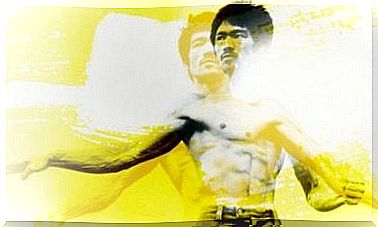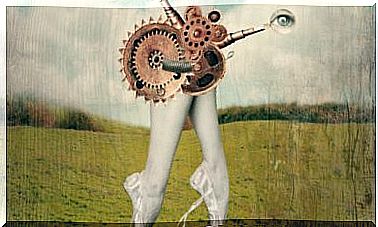The King’s Speech And Speech Disorders
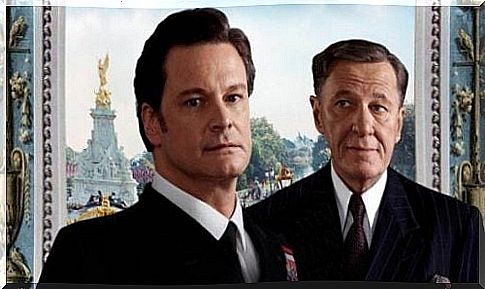
The King’s Speech is a 2010 British film directed by Tom Hooper and starring Colin Firth. He won the Academy Award for Best Actor/Actress for his amazing interpretation of George VI. Geoffrey Rush and Helena Bonham Carter also played along. The film was received with rave reviews, in which especially the actors were praised. In addition to the great work they have done, we also take our hats off to the costume department and cinematography in general. As far as film technique is concerned, that’s it, because we’re going to talk about George VI’s speech disorder!
The King’s Speech , the story of a stutterer
The King’s Speech gives us a glimpse into the private life of a historical character: King George VI of the United Kingdom. The way this film does that is simply majestic! The beautiful script and artistic, tasteful cinematography earned the film an Oscar for Best Original Screenplay, among other things. It is without a doubt a beautiful piece of art that brings us closer to an oft-forgotten problem in the film industry: stuttering.
Even though it is a historical character, we are still immersed in the uncertainty and fear that overpower people with speech disorders. The fear of public speaking, the general nervousness and the rudimentary techniques of the time made George VI an insecure, anxious man. These were the metaphorical ghosts that whispered to him that he would never be able to make a speech at a political level, least of all as a king.
With the help of a speech therapist, Lionel Logue, George VI starts his speech therapy trajectory. This not only helps him (partly) get over his speech disorder, but also leads to a strong friendship with Logue. He helps the eventual king overcome his deepest fears. At the same time, the film’s spectators get to see a more human side of royalty. One can enjoy the challenges presented by Logue George VI while being introduced not only to stuttering, but also to the history of the first half of the 20th century. This is not done in a shocking way, but in an elegant and pleasant way. This is The King’s Speech, a movie we’ve been watching — ironically — speechless.
George VI and Lionel Logue
George VI, also known as Bertie within his family, unexpectedly became king. He was the second son of King George V, which would see his older brother, Edward VIII, take the throne after their father. He did, but his reign was short-lived. He fell in love with Wallis Simpson, an American woman who was already going through her second divorce at the time. His proposal to her was incompatible with his responsibilities as king for various reasons, leaving George VI to take his place on the throne.
His first speech problems showed themselves at the young age of 4 or 5 years, as in most children. He was the Duke of York, son of the king and part of the British royal family. As a result, he regularly had to make public speeches. However, these aggravated his situation: his anxiety aggravated his stutter, which in turn aggravated his anxiety. Those two elements formed his vicious circle. Because of this, he became afraid to speak in public and developed many insecurities. He tried to make his stutter disappear with the help of various doctors and treatment methods, but to no avail.
Lionel Logue’s Journey to Magnificence
Lionel Logue was not a doctor: he had not studied medicine. However, in his younger years (which he had spent in Australia) he did obtain a degree in rhetoric and the performing arts. Rhetoric comes down to the art of public speaking. As you can imagine, this ultimately suited George VI’s needs well. After the First World War, Logue devoted himself entirely to speech therapy, which led him to live in London. Here he met the Duke of York.
Logue diagnosed George IV with a lack of coordination between the larynx (the vocal cords) and the diaphragm. This resulted in relaxation exercises, tongue twisters and other less frequent exercises. These helped George IV overcome his stutter. Ultimately, thanks to this treatment, Logue became one of the founders of the Royal College of Speech and Language Therapists in 1944.
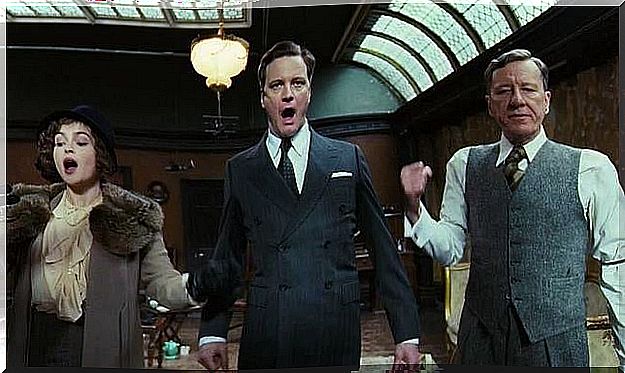
speech therapy
In the film we see the application of Logue’s speech therapy knowledge and what the future king will achieve with this. The therapy sessions resulted in a strong, lifelong friendship. George VI finds an ally in Logue; someone he can trust and share his greatest fears with.
This therapy doesn’t just consist of gargling or putting marbles in your mouth, as other doctors suggested at the time. Here they looked for the cause of George VI’s stutter.
At first, the Duke was skeptical of Logue’s methods. He did not want to be treated like a normal man and had to be addressed as “Your Royal Highness.” However, Logue called him Bertie, just as his family did, and refused to give him preferential treatment.
Logue eventually won George VI’s trust. This is how we get to know his sad past as a childhood filled with bullying, the death of one of his brothers and a time when he couldn’t be himself. His rigorous education and the strict demands of the royal family made George VI an insecure man incapable of delivering speeches. He was even forced to use his right hand despite being left-handed.
The King’s Speech shows us the most difficult part of life as a nobleman and a public figure, as well as bringing depth to speech disorders for the spectators. At the same time, it demonstrates how the friendship between the two characters brings George VI closer to the reality of his people; closer to the lives of those over whom he rules. He himself says in one of his first sessions that he has no knowledge about the world. Only life within the palace is known to him.
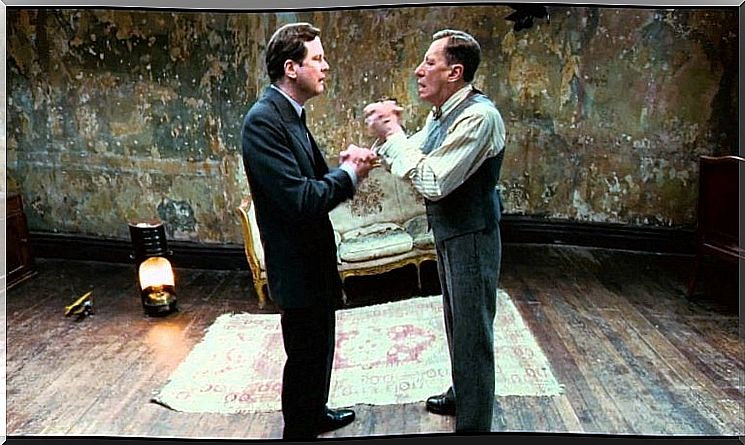
The King’s Speech , the voice of the people
David Seidler, the author of the script, stuttered himself as a child and thus saw George VI as an inspiration. He could see himself in him, which made him decide to investigate how he had overcome his speech disorder. He also spoke to Logue’s son, who showed him some of his father’s notebooks for inspection.
One of Logue’s grandsons, Mark Logue, also wrote a book called “ The King’s Speech: How one man saved the British Monarchy. This was the inspiration behind the film’s name. The project was delayed for several years until 2010, when the admirable result was shared with us.
Thanks to the great quality of the film and its actors, we now have the chance to get a closer look at this royal man. He was a stutterer who eventually became the voice of the entire empire in a particularly delicate era: the start of World War II. Just then, it was critical that world leaders possess the charisma to inspire calmness in their peoples. At that moment, George VI had to face his worst fears and take control of an unexpected situation: he had to ascend the British throne.
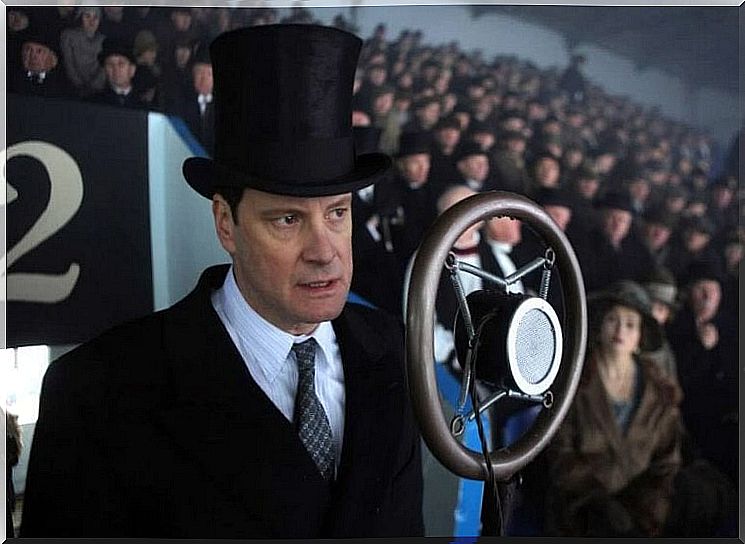
From stutterer to public speaker
Can a stutterer become a great public speaker? Demosthenes, an Athenian statesman from Ancient Greece who was mentioned in the film, succeeded. However, this cost him a lot of effort. George VI was also eventually able to convey the calm that his people needed. Thanks to Logue’s unyielding effort and the support of his wife (Elizabeth Bowes-Lyon).
In a certain scene of the film, we can see George VI listening to Hitler’s speech. Even if he does not understand the language, he still becomes insecure when he sees the charisma of Hitler.
The scenes of the speeches are so truthful that the king’s anguish and anguish almost burst off the screen. He not only stands in front of the microphone, but also in front of the critical eyes of his entire audience. The King’s Speech is a beautiful work of art that takes us on a journey into the past and invites us to encounter one of the most common fears among human beings.
